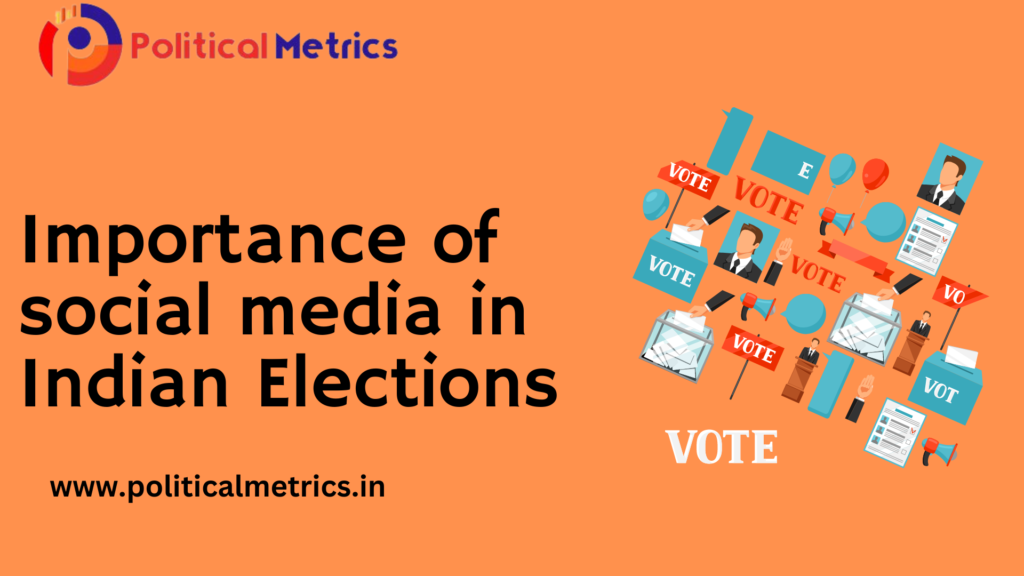
In recent years, social media has grown in significance during Indian election campaigns. The following are some major explanations for why social media is important in Indian election campaigns:
Greater engagement and reach: Because social media platforms have such a large and varied audience, political parties and candidates can interact with a wider range of people. Platforms like Facebook, Twitter, Instagram, and YouTube, which have millions of active users in India, provide a useful way to interact with voters, disseminate campaign messages, and elicit support.
Targeted messaging: Political parties are able to cater their messaging to particular demographics or interest groups using social media platforms. They can target voters based on variables like location, age, gender, and interests by using data analytics and targeting tools. This makes it possible for parties to interact directly with the appropriate voter segments and present tailored content.
Real-time communication: Political parties, candidates, and voters can all communicate instantly and directly through social media. Real-time updates, rally plans, policy declarations, and other campaign-related information can be shared by candidates. This enables quick information dissemination and enables quick reaction to controversies or political developments.
Grassroots mobilization: Social media gives political parties and candidates more power to organise volunteers and supporters at the local level. It makes it possible to build online communities where supporters can interact, plan events, raise money, and share campaign-related content. This aids in gaining momentum and igniting enthusiasm among grassroots supporters.
Voter awareness and education: Social media platforms are used as a platform to inform voters about the election process, candidate biographies, party platforms, and crucial policy issues. Videos, infographics, and other interesting content formats can be used by parties to disseminate information. A place for discussions, debates, and spreading awareness of social and political issues is provided by social media.
Rapid response and feedback: Political parties can use social media to track public opinion and quickly address issues or concerns. It gives candidates a chance to respond to criticism, dispel misconceptions, or retract any errors. Parties can fine-tune their campaign strategies by using engagement metrics such as comments, likes, and shares to gauge public opinion.
Cost-effectiveness: Social media provides a comparatively cost-effective way to reach a large audience when compared to traditional media channels. The cost of targeted social media advertising and content creation can be included in political parties’ campaign budgets, frequently for a fraction of the price of television or print ads. Because of this, it is easier for smaller parties or candidates with limited funding to participate in the electoral process.
It is crucial to remember that while social media has transformed election campaigns, it also comes with risks like the potential for manipulation, the spread of false information, and echo chambers. With an emphasis on the necessity of responsible and ethical use of social media during elections, the Indian Election Commission and social media platforms have taken action to regulate campaign activities and address these concerns.